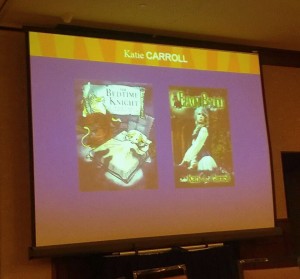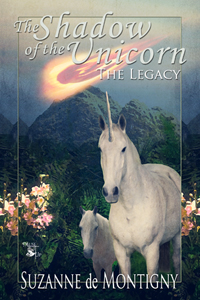Today I’m doing an interview over at the new MuseItUp Young and YA blog. In my absence, please welcome fellow Muser Kai Strand, author of the middle grade fantasy Beware of the White (check out my Goodreads review), as she discusses her editorial process.
DO THE HARD WORK
Hi everybody! I’m Kai Strand, author of the newly released middle grade fantasy adventure, Beware of the White. I’m thrilled to be on Katie’s blog. Katie was my content editor for Beware of the White and she helped me SO much!
I have a love/hate relationship with editing. I cannot stand the initial revisions, the first pass review that follows the creative high of the first draft. As painfully boring as those revisions are to me, I understand they are crucial to the process. I have great critique partners and I don’t want to jeopardize our working relationship by sending them work I haven’t done due diligence in. It is disrespectful of their time and expertise to send sloppy work.
Once I get their input, I enjoy the editing process again. I like to see how they suggest improvement to the storyline or character development. I love to see where they melt over a character or shake a fist in frustration. I even find the occasional question mark (the ‘what-exactly-do-you-mean-here’ question mark) challenging. As an author, it isn’t my job to defend my work, it is my job to make the story and characters clear to the reader so that no defense is required.
After that, I usually go into another funk of ‘this is so boring’ as I prepare the manuscript for submission. Once I get an editor assigned from the publisher I fall back in love again. I love when an editor really challenges me to improve the book. I love wanting to tear my hair out because it feels like so much work after having put in so much work already. Because I know that will make it a stronger story that will resonate with the reader.
So here comes my last hateful relationship with the editing process. The hard work. Ah, you thought I already mentioned the hard work above, huh? There is one more crucial step. When a content editor reads your work, she examines the story for logic, gaps, motivation. She notes if the pace falls off, mentions an awkward dialogue exchange, points out where your heroine suddenly jumps out of character. You fix the things she mentions and the two of you exchange the manuscript a few times to tweak and refine your words. The line editor points out all of your misuse of commas, grammatical errors, and tweaks to the formatting.
But wait…who is making sure that after all these changes, the words still flow? OH! The author. Before those final edits are turned in, do the hard work and read your story aloud. When you are micro-editing it is so easy to edit in duplicate words or phrases, awkward transitions or a different writing voice. The only way to make absolutely certain the edits are a success is to start at the beginning and read all the way to the end. And do it OUT LOUD! Don’t cry. I know it’s a lot of work, but your story will be stronger for it. I promise.
About Beware of the White:
 As is tradition, Terra learns on the Saturday past her twelfth birthday that she is a Natures Spirit. It is her legacy to serve in the peaceful underground city of Concord. Learning she is named in a prophecy and being threatened by the leader of the death tribe…that part breaks tradition.
As is tradition, Terra learns on the Saturday past her twelfth birthday that she is a Natures Spirit. It is her legacy to serve in the peaceful underground city of Concord. Learning she is named in a prophecy and being threatened by the leader of the death tribe…that part breaks tradition.
The Trepidus are the death janitors of the Underworld, responsible for delivering fatalities with a smile and cleaning up after themselves until Blanco, recent leader of the Trepidus, decides the day of reckoning for his species is coming. He begins organizing the creatures and leads them toward an uprising. The prophecy says there is one person who can stop him. Terra.
With Spirit of Security, Frank, protecting her, Terra attempts to complete her training and discover her Spirit talents. Together, they go on a rogue investigation to learn how to defeat Blanco. In the end, it comes down to a battle of the minds. The future of Concord is at stake. Will Blanco, the older, more experienced being win? Or will Terra, the young, new Spirit earn back the peace of the city?
Buy It:
To celebrate the launch of BEWARE OF THE WHITE, Kai Strand has awesome book related prize packages. Be sure to enter to win. And return again and again to claim entries as you qualify. Kai will also have Spontaneous Giveaways during her book tour. Those giveaways won’t be announced so be sure to follow Kai’s tour. Only virtual stalkers will have the opportunity at all the fun!
About the author:
Kai Strand writes fiction for kids and teens. Her debut novel, The Weaver, was a finalist in the 2012 EPIC eBook Awards. She is a (very lucky) wife and the mother of four amazing kids. The most common sound in her household is laughter. The second most common is, “Do your dishes!” She and her family hike, geocache, and canoe in beautiful Central Oregon, where they call home.
To find out more about Kai’s books, download companion documents, find links to her published short stories and discover all the places to find Kai both virtually and in person, visit her website: www.kaistrand.com. She loves to hear from readers, so feel free to send her an email or visit her facebook page, Kai Strand, Author.
 “Technology’s great when it works.”
“Technology’s great when it works.”






















